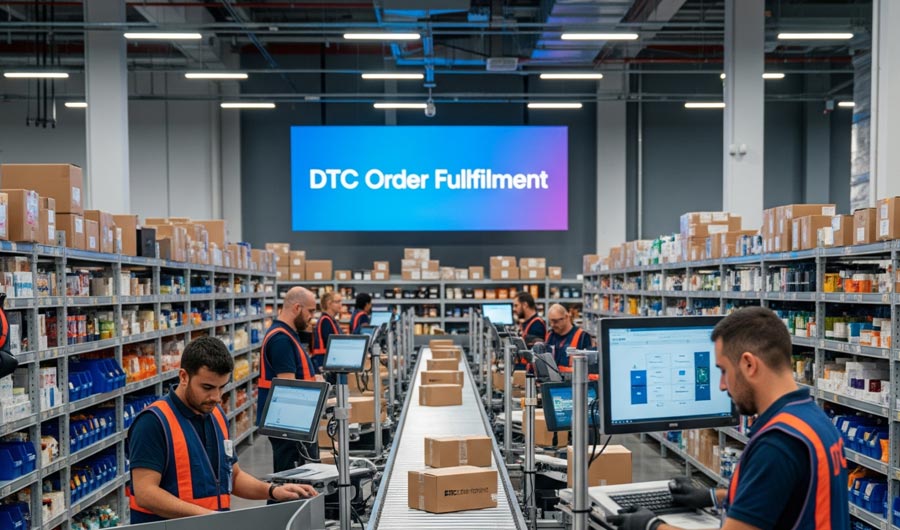
Digital Marketing London Ontario: Strategies for Success in 2024
Digital marketing is rapidly evolving in London, Ontario mirroring trends. Businesses, in the area are increasingly realizing the importance of establishing an presence to connect with their target audience. Effective digital marketing strategies can greatly enhance visibility and customer engagement making it crucial for local companies to remain competitive.
Local businesses can utilize marketing tactics such as social media, search engine optimization and email campaigns tailored to the specific dynamics of the London market. Engaging with the community and understanding trends are elements that can enrich these strategies. Companies that successfully implement these approaches often witness results in their growth and customer base.
As marketing progresses staying abreast of the tools and techniques becomes essential for success. By embracing solutions and focusing on audience needs businesses in London Ontario can flourish in the realm.
Foundations of Digital Marketing in London Ontario
Digital marketing Agency London Ontario requires a customized approach that takes into account market dynamics and digital trends. Key aspects include analyzing the market and grasping the digital landscape.
Diverse Local Market Analysis
The diverse local market in London encompasses industries such, as healthcare, education and technology.
Businesses need to pinpoint their target audiences in order to connect with customers effectively.
Essential aspects to consider are;
- Demographics; Having a grasp of age income levels and interests can help fine tune marketing tactics.
- Competition; Studying rivals aids, in identifying areas for growth and opportunities.
- Consumer Behavior; Local purchasing trends also impact the choice of marketing platforms.
Employing tools such as Google Analytics and insights from media can offer data for making well informed decisions.
Understanding London Digital Scene
The digital landscape of London is rapidly changing, with a rise in internet usage and mobile adoption. Businesses must adjust their marketing strategies accordingly.
Key factors to take into account are;
- Search Engine Optimization (SEO); A robust local SEO plan ensures visibility on search engine results pages for attracting visitors.
- Social Media Engagement; Platforms like Facebook and Instagram boast user bases making them essential for communication.
- Content Creation; High quality content that resonates with the culture boosts brand relevance.
Utilizing directories and engaging with the community can further solidify a brands digital footprint.
Approaches for Achieving Success
Achieving success in marketing in London Ontario necessitates a strategy. Areas worth focusing on include content creation, best practices in SEO and SEM and social media marketing. Each of these tactics plays a role, in establishing an online presence.
Creating and Managing Content
Producing high quality content is vital, for engaging with audiences and driving traffic. Marketers should concentrate on developing informative valuable content that caters to their target groups. Regularly posting blogs, infographics and videos can capture interest.
Effectively convey information
Using a content calendar can help maintain consistency by ensuring that posts are scheduled and published regularly. Monitoring performance metrics can also provide insights for content strategies allowing marketers to refine their approach based on audience behavior.
Key Aspects of Content Management;
- Relevance; Tailoring content to match the interests and needs of the audience.
- Quality; Investing time in creating researched and visually appealing materials.
- Frequency; Keeping a posting schedule to sustain audience engagement.
Best Practices for SEO & SEM
Search engine optimization (SEO) and search engine marketing (SEM) are essential for improving visibility. Implementing keyword strategies is a first step. This involves researching keywords that potential customers are likely to use and seamlessly integrating them into website content.
On page SEO elements like title tags, meta descriptions and header tags can boost search visibility. Off page tactics such, as building backlinks also play a role. Marketers should analyze analytics data to adapt their strategies based on performance.
Here are some recommended approaches;
- Conducting Keyword Research; Identify and focus on keywords that’re relevant, to your business.
- Implementing Technical SEO; Ensure that your website is fast, responsive and secure.
- Utilizing Pay Per Click (PPC); Use search engine marketing for advertising to reach demographics.
Engagement on Social Media
Social media platforms present opportunities for interaction and brand development. It’s important for marketers to choose platforms that resonate with their target audience, such as Facebook, Instagram or LinkedIn. Each platform requires customized content strategies to enhance visibility and engagement.
Consistently sharing updates interacting with followers and using paid advertisements can drive traffic. Boost brand recognition. Analytics tools can help gauge the impact of campaigns enabling marketers to make adjustments.
Effective tactics include;
- Engaging with Followers; Respond promptly to comments and messages.
- Diversifying Content; images, videos and polls to diversify posts.
- Collaborating with Influencers; Partner with influencers to expand your reach.
Evaluation and Enhancement
Thorough evaluation and enhancement are aspects of marketing strategies. They allow businesses to evaluate their performance and refine their approaches based on data driven insights.
Insights from Analytics
Analytics offer insights, into user behavior engagement levels and the success of marketing initiatives.
Using tools such, as Google Analytics enables marketers to monitor performance metrics like;
- Website Traffic; Number of visitors and page views.
- Bounce Rate; Percentage of visitors who exit after viewing one page.
- Session Duration; Time users spend on the site.
Regular reporting helps in spotting trends and patterns. Marketers should design personalized dashboards for visualization of data and creation of reports. Segmenting the audience based on demographics and behavior enhances understanding of factors influencing conversions.
Optimizing Conversion Rates
Conversion Rate Optimization (CRO) aims at enhancing the percentage of visitors completing desired actions. Strategies include;
- A/B Testing; Experimenting with webpage elements to identify variations.
- Enhancements in User Experience; Improving navigation flow and ensuring mobile compatibility.
- Clear Calls to Action; Using compelling CTAs strategically placed for impact.
By analyzing user interactions and feedback marketers can make tweaks. Prioritizing optimizations with impact can lead to significant boosts in conversion rates and overall marketing success.
Trends in Digital Marketing
The landscape of marketing is ever changing, driven by technologies and consumer preferences.
Personalization has become crucial with businesses leveraging data analytics to customize content and ads based on individual user preferences. This tailored approach heightens engagement. Conversion rates.
Video content continues to be a force, in the marketing landscape with brands investing in live streaming and short video formats to capture the attention of audiences. Platforms such as TikTok and Instagram Reels are at the forefront of this trend.
The rise of Voice Search Optimization is notable as more users are turning to voice activated devices for their search queries. Marketers are adjusting their SEO tactics by incorporating keywords that match natural speech patterns.
The integration of Artificial Intelligence (AI) is revolutionizing customer experiences with AI tools analyzing consumer behavior to enhance targeting and automate responses. Chatbots have become instrumental in delivering customer support.
Sustainable Marketing strategies are on the rise reflecting consumers growing preference for brands. Marketers are increasingly incorporating eco initiatives into their campaigns.
Influencer Marketing remains a strategy through collaborations with micro influencers who can deliver significant returns on investment due to their highly engaged niche audiences.
Key Trends;
- Personalization
- Video Content
- Voice Search Optimization
- Artificial Intelligence
- Marketing
- Influencer Marketing
Keeping abreast of these trends enables marketers to adjust their strategies crucial for achieving success, in todays competitive market environment.






